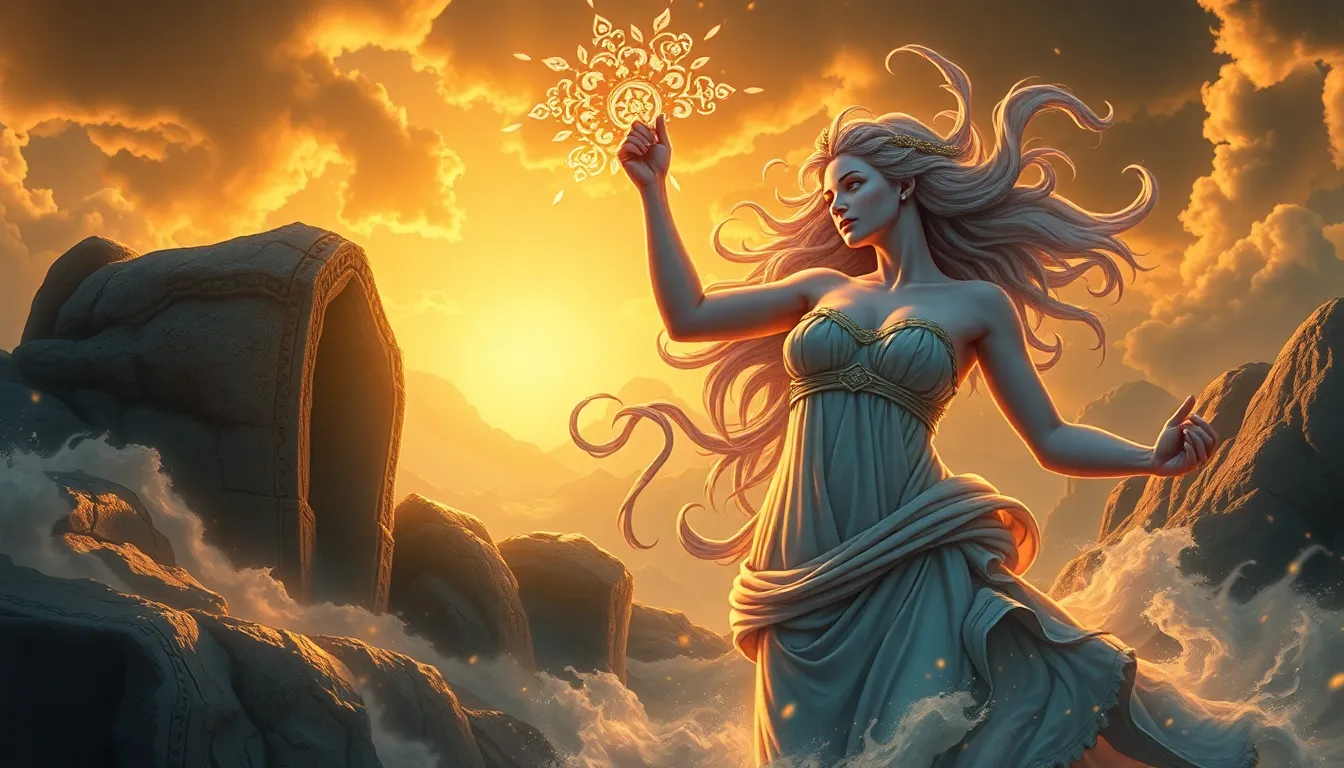The Feminine Power of Pandora: A Study in Greek Mythology
I. Introduction
Greek mythology is a rich tapestry of stories that have shaped Western thought and culture for millennia. The myths serve not only as entertaining tales but also as profound reflections on human nature, morality, and the cosmos. Among these figures, Pandora stands out as a complex character whose narrative encapsulates themes of femininity, power, and the duality of creation and destruction.
This article aims to explore Pandora as a mythological figure, delving into her origins, the implications of her actions, and the broader themes of feminine power that her story invokes. By examining Pandora’s narrative, we can gain insight into the societal perceptions of women in ancient Greece and how these perceptions resonate in contemporary discussions about femininity.
II. The Origin of Pandora
Pandora’s creation is attributed to the gods, specifically crafted by Hephaestus at the behest of Zeus. She was endowed with gifts from various deities, making her a unique blend of beauty, intelligence, and charm. Her very name, “Pandora,” translates to “all gifts,” symbolizing the multitude of traits bestowed upon her.
In the context of Greek mythology, Pandora represents the complexities of human nature and the consequences of divine intervention. Her creation was not merely an act of benevolence but rather a calculated move by the gods to introduce a new layer of challenge and intrigue into the world of mortals.
III. The Myth of Pandora’s Box
The most famous aspect of Pandora’s story is the tale of her box, often mistakenly referred to as a box but more accurately described as a jar (pithos) containing all the evils of the world. According to the myth, Pandora was given this jar and instructed not to open it. However, driven by curiosity, she eventually succumbed to temptation.
The act of opening the box can be viewed as a powerful metaphor for human curiosity and the desire to know the unknown. The implications of this act are profound: upon opening the jar, Pandora released a flood of suffering, disease, and despair into the world. Yet, amidst this chaos, she also released hope, suggesting that even in the darkest times, there remains a glimmer of light.
IV. Feminine Agency and Autonomy
Pandora’s role as a catalyst in the myth cannot be overstated. Her decision to open the jar signifies an exercise of agency, albeit one that leads to catastrophic consequences. Within a patriarchal framework, her actions prompt a reevaluation of women’s roles in myth and society.
- Pandora’s curiosity reflects a fundamental aspect of human nature, transcending gender.
- Her choices illustrate the complexities of autonomy, particularly for women in a male-dominated world.
The implications of her choices extend beyond her personal narrative, impacting the broader narrative of humanity. Pandora’s story challenges the notion of women as mere passive recipients of fate, instead positioning them as active participants in the unfolding of events.
V. Feminine Power and the Themes of Creation and Destruction
Pandora embodies a duality: she is both a creator and a destroyer. Her existence brings forth new challenges for humanity, suggesting that feminine power is inherently tied to both creation and destruction. This duality is pivotal in understanding the balance of chaos and order within the myth.
In examining feminine power through Pandora, we see:
- The potential for chaos that arises from curiosity and desire.
- The necessity of destruction for the emergence of new life and understanding.
This balance of creation and destruction reflects broader themes in mythology, where the feminine is often associated with both nurturing and chaos, highlighting the complexities of divine femininity.
VI. Cultural Interpretations of Pandora
The image of Pandora has evolved significantly throughout history. Initially portrayed as a tragic figure, her narrative has been reinterpreted in various contexts:
- In classical art, she is depicted as a beautiful but dangerous woman.
- Modern literature often reexamines her as a symbol of empowerment and resilience.
Comparatively, Pandora shares similarities with other female figures in mythology, such as Eve from Judeo-Christian traditions, who also embodies themes of temptation and consequence. These parallels highlight a recurring motif of women’s roles in myth as both creators and bearers of burdens.
VII. The Legacy of Pandora in Contemporary Society
Today, Pandora’s myth remains relevant in discussions about femininity and the complexities surrounding it. The implications of her story resonate in contemporary feminist discourse, where themes of autonomy, agency, and the consequences of curiosity are explored.
Lessons learned from Pandora’s experience include:
- The recognition of women’s agency and the importance of their choices.
- The understanding that curiosity and desire can lead to both positive and negative outcomes.
As society continues to grapple with issues of gender and power dynamics, Pandora serves as a reminder of the intricacies of feminine identity and the potential for both creation and destruction inherent in all individuals.
VIII. Conclusion
In summary, the study of Pandora reveals key insights into the dynamics of feminine power within Greek mythology. Her narrative encapsulates themes of agency, curiosity, and the duality of creation and destruction. As we reflect on the enduring significance of her myth, it becomes clear that Pandora is not merely a symbol of temptation but a complex figure embodying the multifaceted nature of femininity.
Ultimately, Pandora’s story challenges us to reconsider the narratives we construct around women in mythology and society, recognizing their complexities and the powerful roles they play in shaping human experience.




